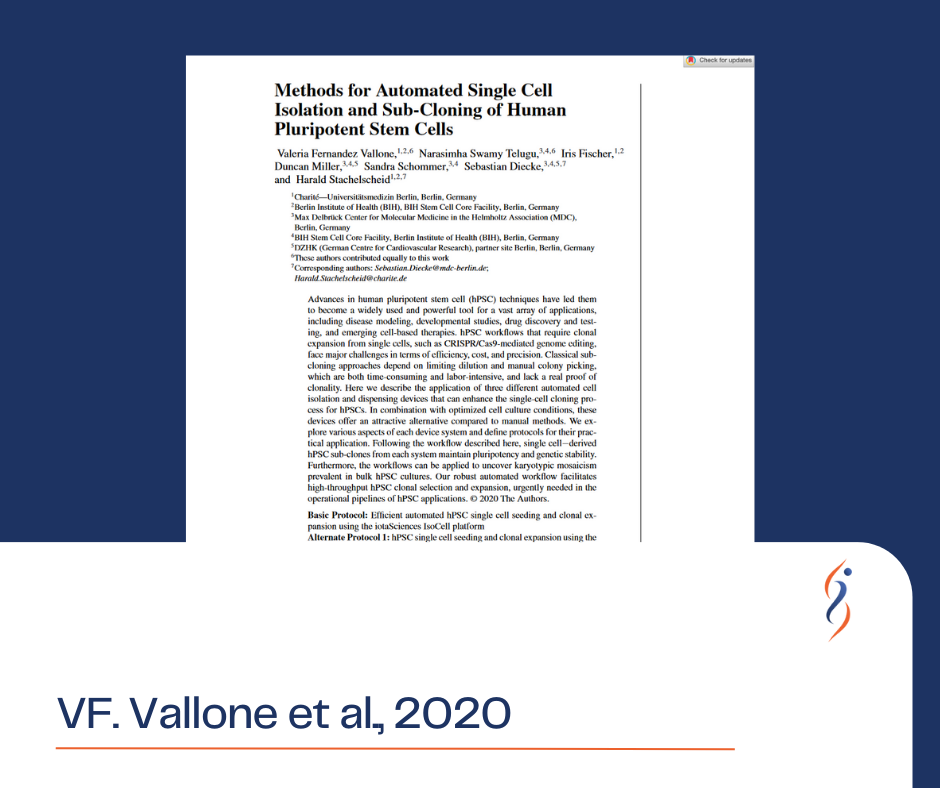Valeria Fernandez Vallone, Narasimha Swamy Telugu, Iris Fischer, Duncan Miller, Sandra Schommer, Sebastian Diecke and Harald Stachelscheid
Advances in human pluripotent stem cell (hPSC) techniques have led them to become a widely used and powerful tool for a vast array of applications, including disease modeling, developmental studies, drug discovery and test- ing, and emerging cell-based therapies. hPSC workflows that require clonal expansion from single cells, such as CRISPR/Cas9-mediated genome editing, face major challenges in terms of efficiency, cost, and precision. Classical sub- cloning approaches depend on limiting dilution and manual colony picking, which are both time-consuming and labor-intensive, and lack a real proof of clonality. Here we describe the application of three different automated cell isolation and dispensing devices that can enhance the single-cell cloning pro- cess for hPSCs. In combination with optimized cell culture conditions, these devices offer an attractive alternative compared to manual methods. We ex- plore various aspects of each device system and define protocols for their prac- tical application. Following the workflow described here, single cell−derived hPSC sub-clones from each system maintain pluripotency and genetic stability. Furthermore, the workflows can be applied to uncover karyotypic mosaicism prevalent in bulk hPSC cultures. Our robust automated workflow facilitates high-throughput hPSC clonal selection and expansion, urgently needed in the operational pipelines of hPSC applications.
Current Protocols in Stem Cell Biology e123, Volume 55
